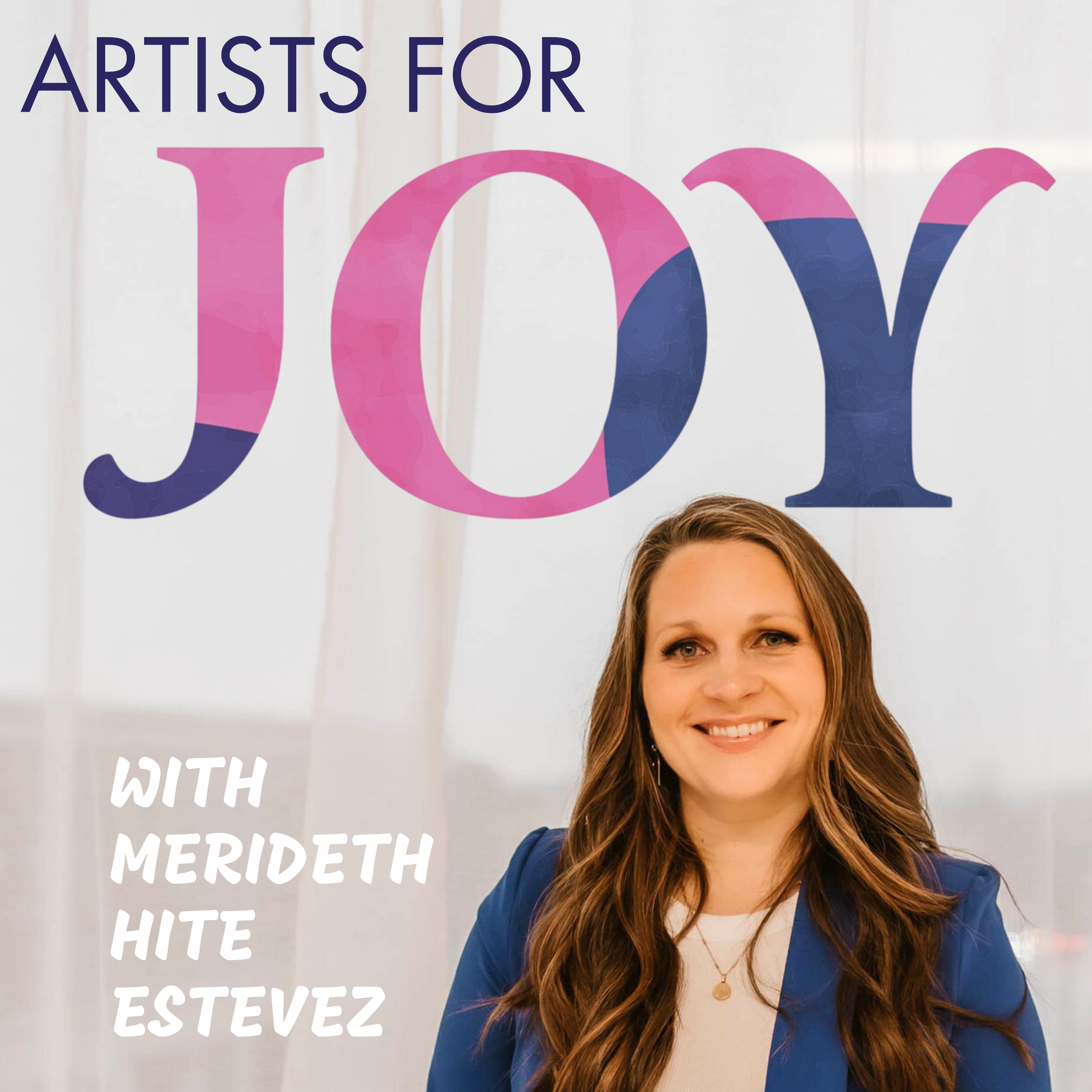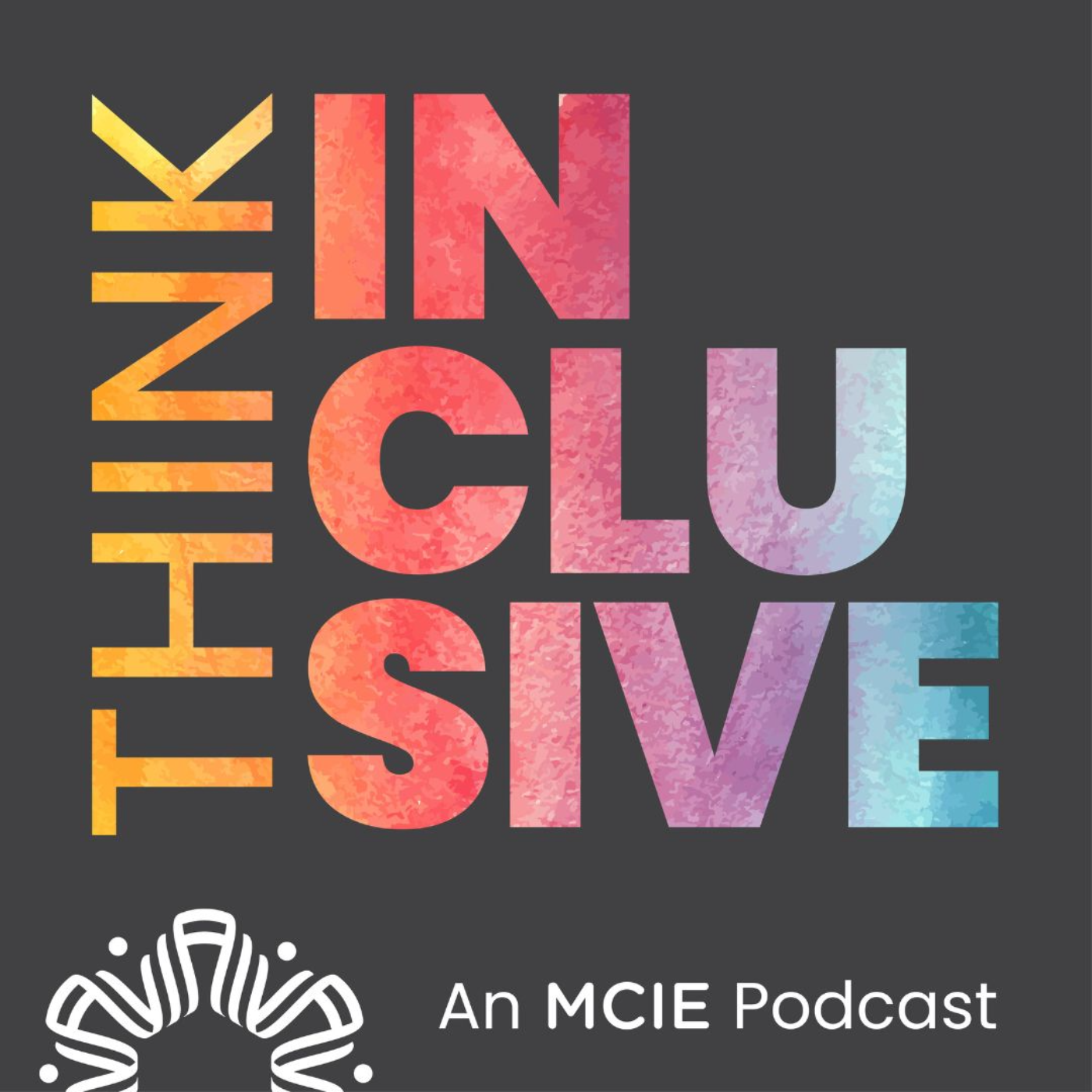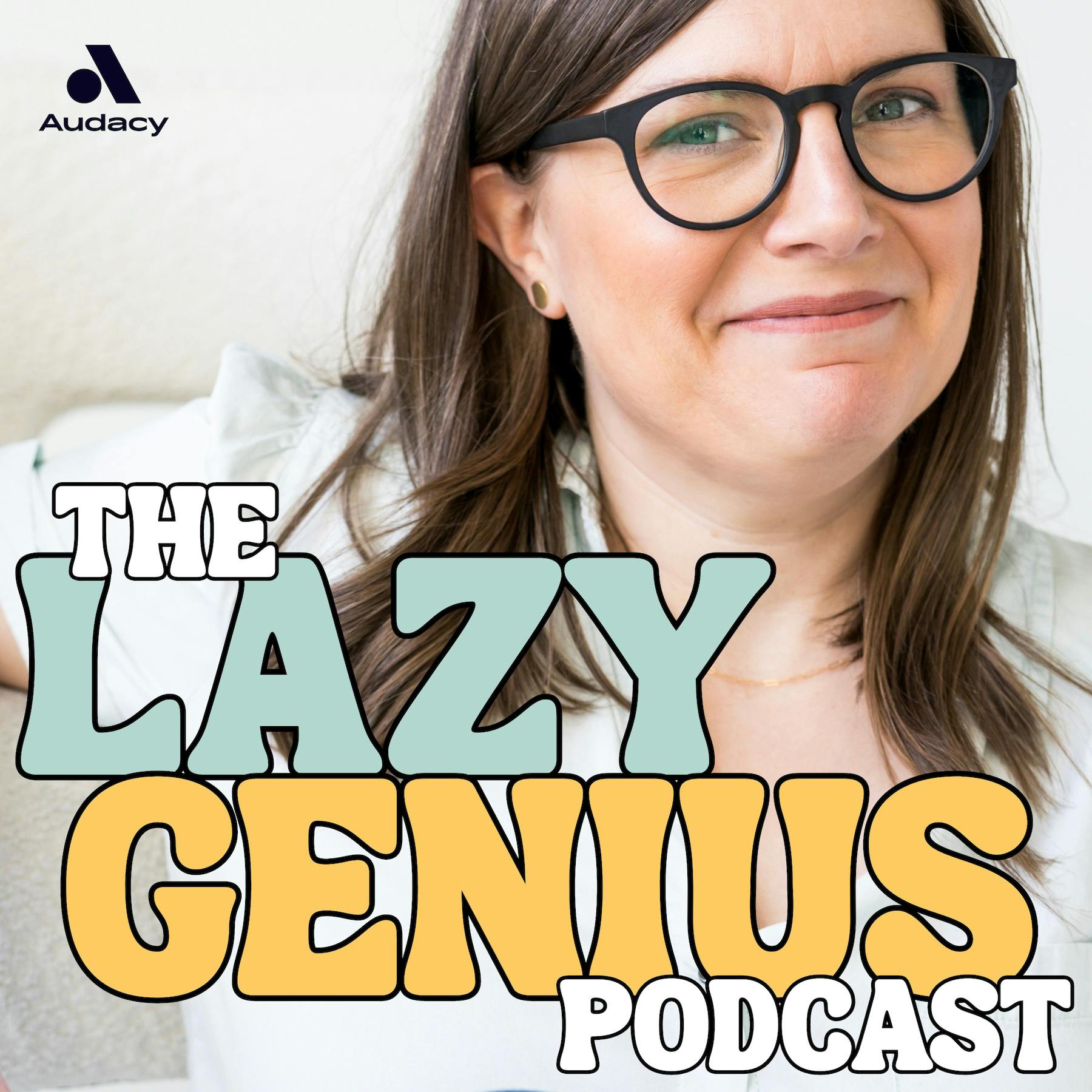
Creative Piano Pedagogy
This podcast is an enriching resource designed specifically for piano teachers and music educators working with out-of-the-box students: students with disabilities, physical or learning differences, gifted and 2-E learners and neurodivergent students. Each episode delves into innovative teaching strategies, offering insights and practical solutions that promote creativity, inclusivity, and approaches teaching from a positive and student-first environment.
Pedagogue, researcher and music educator Dr. Elizabeth Davis-Everhart will demystify topics such as technique, communication, piano methods, understanding behaviors, autism, ADHD, dyslexia and much more- all with a focus on encouraging teachers to meet the diverse needs of their students and inspiring them to embrace new ideas and cultivate the musical potential of every learner.
Creative Piano Pedagogy
10- Summer Series: Planning to Pivot- Adapting in Music Lessons for Neurodivergent Students
The hardest truth about teaching neurodivergent students is the unpredictability. You never know which "version" of your student will arrive each week—focused and ready for challenges, anxious but willing, or struggling with concepts they mastered weeks ago. This variability isn't a failure of teaching or learning; it's simply the reality of neurodivergent brains.
Contrary to misconception, adaptive teaching isn't the easy way out. It demands deeper pedagogical knowledge, thorough preparation, and keen observation skills. But its heart remains beautifully simple: know your student, know your pedagogy, and teach to the individual in front of you.
Ready to connect with other teachers on this journey? Join our free, private Facebook community for creative piano teachers by clicking this link! We're a supportive space for questions, brainstorming, and sharing experiences about teaching neurodivergent learners.
Want to be in on future Teacher Chats? Join the list here to get notified!
Links from today's episode:
My favorite musical coloring pages
Check out the Bubble Timer Blogpost
My favorite Comfort Fidget Tools/Toys
Note: The music puzzle mentioned in the episode is no longer available, but here is a similar set of velcro music puzzles Elizabeth often uses in lessons from Etsy
*As an Amazon Affiliate, I may receive a small commission (at no extra cost to you!) if you purchase through the Amazon links, which helps support the podcast and ongoing projects and research.
Find the full transcript here of this episode and all past episodes!
📚 Join the waitlist for the next Piano Teachers Book Club Session!
Subscribe to Elizabeth's email list here so you won’t miss future courses, freebies, teacher events and more.
Let's stay in touch!
On the website/blog
Follow on Facebook
Follow on Instagram
Follow on YouTube
You can find all of our favorite repertoire and teaching tools on the Amazon Storefront (affiliate link)
Questions or suggestions? Send Elizabeth an email:
elizabeth@creativepianopedagogy.com
As an Amazon Affiliate, we may receive a small commission at no additional cost to you if you purchase through our links. Thank you for helping support the podcast!
Happy last week of July, friends. Am I the only one that feels like maybe yesterday was the end of June? I remain firm in my belief that July is the most deceptive month of the entire calendar year. It makes you think that it will be so lengthy and that August is so very far away, but no, it's almost here. This will be the last episode of our summer series, "so I have this student. Thank you so much to everyone who has sent feedback messages on Facebook and Instagram and emails with the thumbs up that you really enjoyed it or that this was helpful, and those of you who also sent in some topics and thoughts and teaching quandaries. Thank you very much for taking time to do that.
Dr. Elizabeth:On last week's episode, I mentioned the exciting news that this fall the podcast will become a weekly episode podcast rather than once or twice monthly, which is very exciting. With that news, I shared that if you are enjoying the show and would like to help keep it going, you can click "support the podcast in the description to help keep all this research and work going, and I want to say a huge thank you to our very first supporter, susie. Thank you so much, susie. That is so encouraging and I'm so glad you're enjoying the podcast. If you're also enjoying the podcast and you would like to let me know that you're enjoying it in a non tangible way, a really easy thing you can do is leave a review on whichever podcast app you enjoy listening on. If that's Apple or Spotify give it a rating and share your favorite episode, or just a really quick comment to let me know that you're enjoying it, and that will also help those platforms recommend the podcast to other listeners as well.
Dr. Elizabeth:We'll have some new community opportunities this fall I'm really excited about. We are going to relaunch the Piano Teachers Book Club. This made a brief debut back in 2020 and it was very, very fun. We also have new mini courses on teaching coming and the return of the well-loved teacher chats. . We had an amazing Summer summer Teacher teacher Chat chat this past Friday and we had about 20 teachers from around the world join us. They shared updates on their studios, they They showed us their studios on Zooms, they They shared new things that they're doing or trying and a lot of them asked questions of the group. We met on Zoom for about an hour and a half and it was absolutely the most joy-filled and delightful afternoon. Thank you to all who attended.
Dr. Elizabeth:If you're listening and thinking"hmm hmm, I would enjoy that. How do I get it on it? Teacher chats are completely free and they are held virtually on Zoom, so just click the link in the podcast description to get notified of the next teacher chat and also follow on Facebook and Instagram. I always announce the dates there. I'll have one more bit of exciting community news to share at the end of today's episode, so stick around to find that out. I love building a little suspense suspension here.
Dr. Elizabeth:Now, on to today's topic and our last summer episode. Today's teaching question is "how do you actually adapt during the piano lesson and switch to something else? Do you have any tips for adapting in the moment or any success stories from when you've done that? I love this question. This podcast is all about creative and adaptive teaching and teaching to the student, so this is at the heart of everything I do as a teacher and all we aim to share here at Creative Piano Pedagogy. I think this is likely a very common concern and question amongst teachers who are teaching students with disabilities or are starting to realize that that typical approach is not working for their students.
Dr. Elizabeth:Adapting sounds fantastic and, truthfully, it sounds simple, but how do you actually do that and what does it look like? Let's dig in. First, I want to preface this with a clarification and maybe a slight myth- buster. We do not wait until something goes wrong in a lesson to start to adapt. We shouldn't wait until a student is having consistent meltdowns until we stop and think about changing something up or adapting something. The goal is to be thinking in preparation, in the planning stages- "How should I approach this piece or this activity or this concept for this specific student? How can I be prepared to pivot?
Dr. Elizabeth:Let's start there and talk about planning to pivot. Let's start there and talk about planning. And actually, let's use my student as an example. We're going to call her Emily.
Dr. Elizabeth:She is delightful, bright and a very sweet 11-year-old who is diagnosed with autism and ADHD, and I suspect processing delays and dyslexia as well. She absolutely loves music. Her favorite song to play on the piano is Mary had a Little Lamb, and she is up for any activity or concept I want to introduce to her, as long as it involves minimal music reading. The process of reading music really stresses her out. Even if we've had a fantastic and positive lesson, when the music book comes out she has extreme anxiety.
Dr. Elizabeth:While the question of adapting is at the front of so many teachers' minds, I think there's another aspect of teaching neurodivergent learners that can be equally as frustrating, confounding and puzzling. You never know which version of your student will come to their lesson each week. Will it be the super focused, upbeat and positive student who's up for tackling a challenge and is accepting of suggestions? Perhaps it will be the student who's a bit more anxious, more subdued, but still happy to play, and then has a meltdown as soon as they play something incorrectly correctly? Or maybe it's the student who is really happy to be at piano with you but forgets what the lines and spaces are on the staff, they're getting left and right hands mixed up and it feels like you're going back in progress to what they learned six or eight lessons ago. All of this could be the same person on a given week, and this is the really hard thing about teaching neurodivergent students. If you feel this frustration, please know you're not alone. I've been teaching students with disabilities and extreme behavior challenges for about 20 years and this is still really difficult for me at times, and I know it's difficult for a lot of other experienced teachers.
Dr. Elizabeth:However, knowing that I may get these different versions of my student actually helps me greatly in the planning process. Let's keep using my student again for our planning purposes- . Emily Since I'm not sure which version of Emily will come to piano this week, I'll prepare both mentally and physically for three scenarios we mentioned above, above and let's go through what it really looks looks like and even a more practical way. Each week when Emily comes to piano, piano the first thing she does is a coloring activity of some kind. She really needs something sensory that also allows for autonomy, so So I use this opportunity to do music coloring sheets with matching rhythms, note names, piano key names, musical terms, that kind of thing. I'll link my favorite musical coloring sheets below. They're made by . Dr Melody Payne and they are really wonderful. They're a huge favorite in my piano studio and I use them in some capacity almost almost weekly. So for Emily, Emily I'll set aside three coloring activities- activities one One that's a challenge, something she finds kind of , like recognizing specific note names on the staff. I'll also prepare one that's in the middle-, not too difficult but has some newer things we've that That might be a little bit challenging. Then, Then I'll prepare one that is completely a total review. There are no new or very challenging aspects to this activity and it's something she can just enjoy reviewing and reinforcing in a fun and relaxing way.
Dr. Elizabeth:After the coloring sheet we usually do an ear training game. Here's the cool thing- I can almost accurately predict which kind of ear training game I will use when I notice which coloring sheet she chooses. If I can tell from her body language, communication and processing that it needs to be a bit of a lighter learning day where we review and reinforce rather than tackle new challenges, I will choose and do an ear training game where I know she can be successful and likely won't become upset or have a meltdown. But I'll always have that concept in mind that I want to review- the one I want to use in the game. If I'm going to teach a new thing or reinforce a concept, I then come up with those three ways of doing it that are similar but that would fit the student for that day; and this is really what I do for the entire lesson with Emily or any student who is similar. I use her body language, communication and processing skills to help me know what to do next in the lesson. I even use that to help me know how to phrase questions and suggestions to her. Her actions and behaviors communicate to me what she is able to do that day and I observe her very carefully throughout the entire lesson so I can very smoothly transition us from activity to activity, to improvisation, composing and even music reading.
Dr. Elizabeth:When students feel that you as the teacher are trying your best to pivot and learn the things that trigger their frustrations, it builds an enormous amount of trust, and that trust is crucial to a good student- teacher working relationship. There is a caveat here that sometimes neurodivergent students will choose a more difficult piece or activity, concept when you give them the option- and then halfway through they'll get very overwhelmed. When you can notice the signs of frustration and shutdown coming, that is your cue to pivot to one of those less challenging levels of your activity. When that happens, I'm always so glad that I have extra things handy we can pivot to.
Dr. Elizabeth:Some of you may have heard the phrase 'comfort toy, comfort animal.' Some of them (neurodivergent students) will have a stuffed animal they'll bring with them or a fidget toy that literally comforts them. So in piano I do the same thing. I'll choose something the student loves. In Emily's case, it's Mary had a Little Lamb. We'll do an improvisation on Mary had a Little Lamb and I might gently try to encourage that we try it in a different place on the piano. Maybe she can swap with me and sit in the bass of the piano and I'll sit in the treble. Or we could try it with a new rhythm, new dynamics and a new tonality, make up silly words for it, but we'll use that comfort thing as the basis for that moment.
Dr. Elizabeth:Something you might do is think about keeping comfort activities ready for your lessons, especially for those students that tend to get overstimulated or overwhelmed. For Emily, this includes a Velcro music puzzle by Berg Music Studio. I'll link it below. It is laminated and I added adhesive Velcro to help with her finger coordination, muscle control, motor planning, so she can just stick each piece directly on the puzzle where it goes. She loves it. I also have Play-Doh ready with music mats that I've made that she can create notes, musical symbols, to help her remember how to draw them and what they look like. Oh, by the way, I'm creating some music mats to share with you soon so you can use them with Play-Doh or tracing with your students, and I think you'll really enjoy them! You can also use something like pipe cleaners to make the music symbols as well something sensory. I'll also always have a rhythm or movement activity on standby. This can be so helpful for students with sensory issues, which really applies to most neurodivergent students. Movement can really help them regulate their emotions and their stress. So this is the time to have those rhythm sticks, your drum scarves or musical instruments ready and do a really fun activity off the bench.
Dr. Elizabeth:And of course, my favorite calm down tactic and lessons is- drum roll- improvisation. I'll just gently start playing a pattern on the black keys that's very flowing and calming and then, in a singing voice, I'll say "would you like to make up a song with me? This song will be magical because any black key you press will automatically sound beautiful. Do you want to give it a try? And I'll just keep playing and just invite them to join me and I'll say, "oh, do you want to press one with your right hand? And I'll encourage them verbally as we go along. I'll say, oh, that's beautiful. Does your left hand want to try a few? Oh, that's so lovely. Can we keep going? You know, and I'll use their cues as my. You know my observation. I'll keep observing them, but this will help them to center themselves and it also helps them to connect with you in that moment of stress, so you can kind of help them calm down together.
Dr. Elizabeth:Another favorite of Emily's and all of my neurodivergent students is the bubble timer. I shared about this in a blog a few months ago so I'll link that blog post for you below to give you a few ideas of how I use it. But this bubble timer is absolutely amazing, no exaggeration. A huge goal of parents, therapists and teachers of neurodivergent students who experience a lot of sensory issues is for them to eventually be able to calm themselves down and regulate themselves and just realize when they're frustrated. They try to equip them with tools and strategies so that the student can go through those steps mentally to regulate their nervous system. One of the pivotal steps is in a student realizing I need to regulate myself and also I can regulate myself. This is a huge, huge hurdle and big milestone.
Dr. Elizabeth:I keep my bubble timer either on top of my upright piano or on the side and when any of my students reach for it, if they're four years old or 14 years old, I do not correct them and ask them to put it back. There's usually a reason they reach for it and here's one example. Emily reached for the bubble timer a few weeks into piano lessons when we started working together, and I noticed each week when she would reach for it, it was always when we were trying to work on music reading together. I shared this with her parents and they were so shocked. They actually had tears in their eyes and they told me they have been working on helping her achieve and use calm down strategies for years, like five years. They immediately went home and bought a bunch of bubble timers for their house and school. It's so cool that using something so small and inexpensive can help a student in a piano lesson at home or at school. It's so cool.
Dr. Elizabeth:Adaptive teaching is not a reactionary approach. It's a preventative and student-focused approach that is deeply thoughtful, filled with individual care for that student and such a thorough knowledge of the piece or concept being taught that you can instantly pivot. Adaptive teaching is not just finding simplified versions of classical music for your student. Adaptive teaching is not the easy way out and in fact, it's not simplified at all. It's actually very detailed and extremely complex, but the heart of it is simple: Know your student, know your pedagogy, and teach to the student.
Dr. Elizabeth:As you think through your fall lessons and your students for the upcoming year, I challenge you to think of these three levels of student engagement that we talked about today as you plan your lessons for students who might struggle with overwhelm, sensory issues, focus, short attention spans or other neurodivergence. I encourage you to have some comfort activities or strategies at the ready for each lesson and be prepared to pivot based on your students' body language, their focus and their communication. Adaptive teaching sounds tricky and overwhelming, but really it's all about people. Learning, knowing and observing your student and helping provide an atmosphere in which they can learn music and experience the joy it brings. At the same time, they're building trust with you, their piano teacher. What a beautiful venture that is.
Dr. Elizabeth:I promised I had one more exciting community-themed bit of news to share with you here at the end. So if you made it this far, woohoo! Thank you for listening. If you're a reader or listener and you're enjoying what you hear and you'd be interested in connecting with other like-minded teachers who are also on this journey of adaptive and creative teaching, I would love for you to join my free Facebook group for creative piano teachers and I know you might be thinking, "oh, this is all. We need Another Facebook group for piano teachers. You know how I feel about some of those if you saw my recent reel on Instagram or Facebook, but this is an intentionally small and intimate group that is totally private. Anything you share is kept in the group, but it's a very safe, encouraging, positive and truly affirming place to ask questions, talk about your out-of-the-box students and brainstorm. The teachers in this group are amazingly gifted and compassionate and they are also on this journey of teaching neurodivergent learners. If you would like to join, just click the link in the description that says join the Facebook community and I'll approve the requests as they come in. We would love to have you.
Dr. Elizabeth:That's all for today's episode, our last episode in our summer session. We're going to take a little bit of a break for the month of August and then we'll be back in September with an all new season and our weekly episodes, and also some fun interviews with people I think you'll really enjoy hearing from. I hope you enjoy the next few weeks and I will look forward to being back with you soon!
Podcasts we love
Check out these other fine podcasts recommended by us, not an algorithm.

Field Notes on Music Teaching & Learning
Ashley Danyew
Uniquely Human: The Podcast
ART19 Uniquely HumanADHD Experts Podcast
ADDitude
The Piano Pantry Podcast
Amy Chaplin
Piano Inspires Podcast
The Frances Clark Center
TopMusic Piano Podcast
Tim Topham
Piano Puzzler
American Public Media
Composers Datebook
American Public Media
Artists for Joy
Merideth Hite Estevez
Think Inclusive
Tim Villegas
THE AUTISM ADHD PODCAST
Holly Blanc Moses
Hidden Brain
Hidden Brain, Shankar Vedantam
The Lazy Genius Podcast
Kendra, The Lazy Genius
